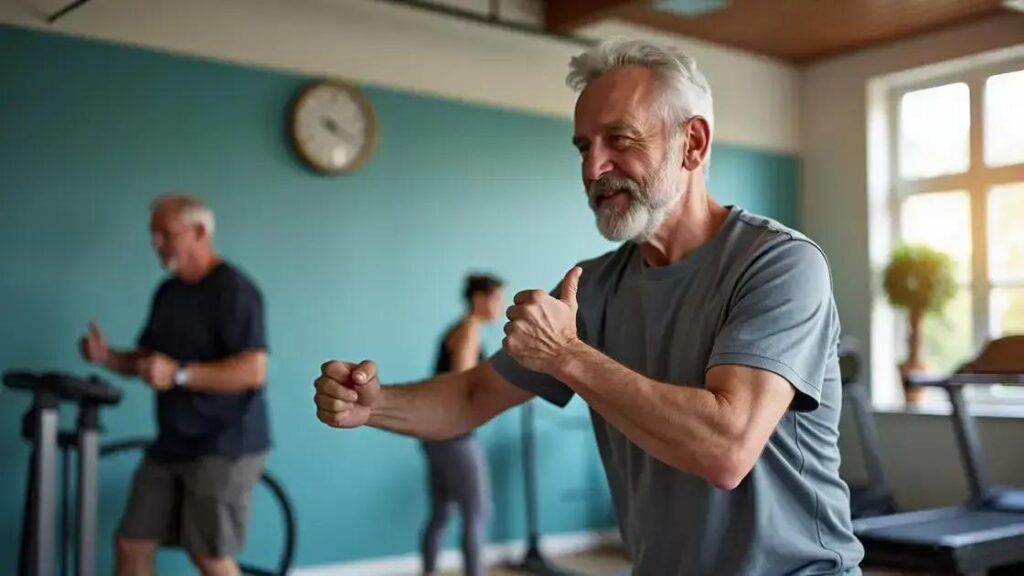The rise of recovery-focused fitness programs for men over 50 emphasizes safe exercises that prioritize recovery, leading to improved strength, flexibility, and overall health. These programs cater to the unique needs of older adults, helping them manage weight, reduce stress, and enhance well-being through a balanced approach to fitness.
As men age, maintaining health and fitness becomes increasingly important. The rise of recovery-focused fitness programs for men over 50 offers innovative approaches to wellness. These programs prioritize recovery, ensuring that physical activity is balanced with rest and rehabilitation strategies. In this article, we will delve into the specifics of these programs and how they can lead to better health outcomes for older men.
Understanding Recovery-Focused Fitness Programs
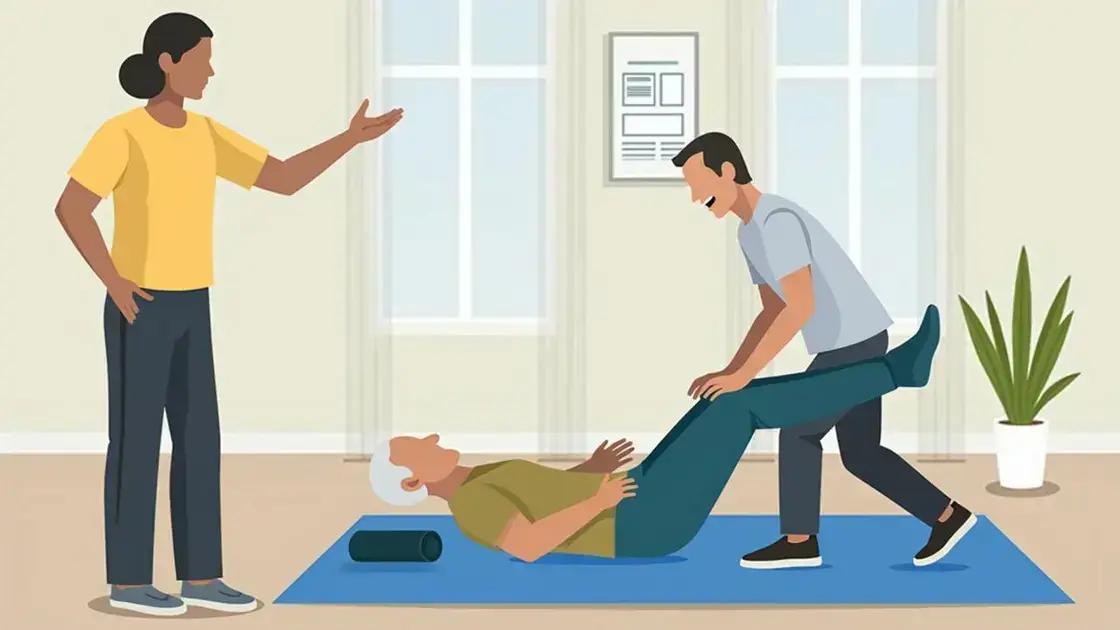
Recovery-focused fitness programs cater to the unique needs of men over 50 by prioritizing recovery and health. Unlike traditional fitness routines, these programs emphasize a balanced approach to physical activity and rest. This framework is essential because as we age, our bodies require more time to recover from exertion. Understanding these programs can help men over 50 maintain a healthy and active lifestyle while minimizing the risk of injury.
What Are Recovery-Focused Fitness Programs?
These programs are designed to support overall wellness through a variety of recovery techniques and exercises. They may include flexibility training, low-impact aerobic activities, and strength training that considers the individual’s capabilities and goals. By focusing on recovery, participants can improve body strength and resilience.
Key Components
Recovery-focused fitness programs typically include:
- Gentle Exercises: Activities like swimming, walking, or yoga that minimize impact on joints.
- Rest and Rehabilitation: Scheduled recovery periods and techniques like stretching or physical therapy.
- Nutritional Support: Guidance on maintaining a diet that promotes healing and recovery.
Why Recovery Matters
Men over 50 often face challenges such as slower metabolism and decreased muscle mass. Recovery-focused programs address these challenges by:
- Enhancing muscle recovery and growth.
- Reducing chronic pain or discomfort from previous injuries.
- Improving overall mobility and flexibility.
The goal of these programs is to create sustainable health habits that prevent injuries and promote longevity in fitness.
Benefits for Men Over 50
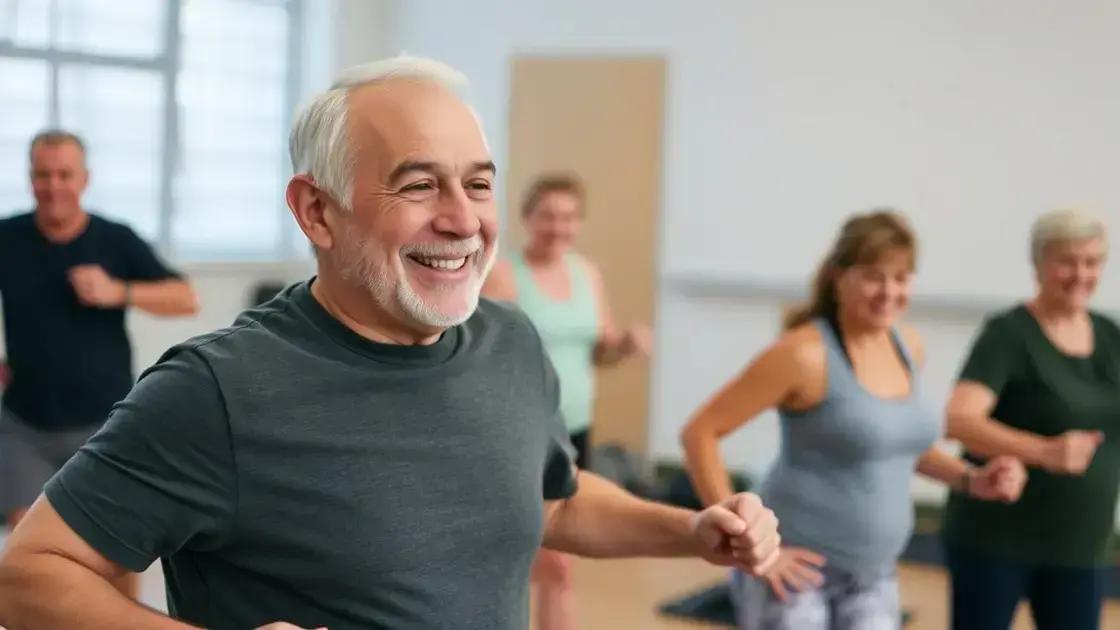
Recovery-focused fitness programs offer numerous benefits for men over 50, targeting both physical and mental health. These programs are tailored to the unique needs of older adults, promoting a balanced approach to fitness that helps maintain an active lifestyle.
Physical Benefits
One of the main advantages is improved physical health. Participants often experience:
- Increased Strength: These programs focus on resistance training to enhance muscle mass and strength.
- Better Flexibility: Regularly practicing stretches and low-impact exercises can lead to greater flexibility and mobility.
- Weight Management: Tailored fitness helps in managing weight through a combination of exercise and dietary support.
- Reduced Risk of Injury: Emphasis on recovery and proper techniques leads to a lower chance of injuries.
Mental Health Advantages
Along with physical improvements, mental health is also supported. Men over 50 can benefit from:
- Lower Stress Levels: Exercise is known to reduce stress, promoting relaxation and well-being.
- Enhanced Mood: Physical activity releases endorphins that boost mood and reduce symptoms of depression.
- Increased Social Interaction: Participating in group activities fosters connections and reduces feelings of isolation.
Long-Term Health Benefits
Engaging in recovery-focused fitness can have long-lasting health benefits, including:
- Chronic Disease Management: Regular exercise aids in managing conditions such as diabetes and heart disease.
- Improved Longevity: Active lifestyles are linked to longer life spans and higher qualities of life.
By focusing on recovery, these programs not only help men over 50 stay fit but also ensure that they enjoy a better quality of life.
How to Choose the Right Program
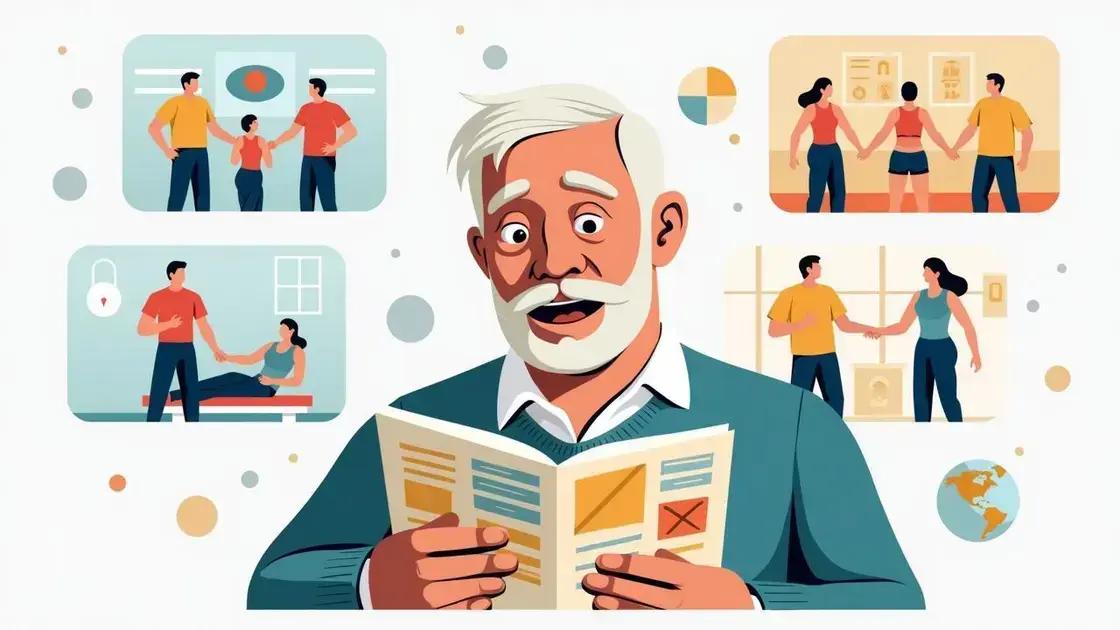
Choosing the right recovery-focused fitness program is essential for men over 50. With various options available, it can be overwhelming to find the best fit. Here are some key factors to consider while selecting the right program:
1. Assess Your Current Fitness Level
Before enrolling in any program, evaluate your current fitness level. Consider factors such as:
- Flexibility: How well can you move your body?
- Strength: Do you feel comfortable lifting weights or performing resistance exercises?
- Endurance: Can you handle longer sessions of physical activity without fatigue?
2. Identify Your Goals
Your fitness goals will play a significant role in choosing a program. Ask yourself what you want to achieve:
- Weight Loss: Are you looking to shed some pounds?
- Increased Strength: Do you want to build muscle?
- Improved Flexibility: Are you aiming to enhance your range of motion?
3. Research Available Programs
Take time to research different recovery-focused fitness programs. Look for:
- Program Structure: Is the program well-organized with a mix of exercises?
- Qualified Instructors: Are trainers certified and experienced?
- Class Size: Smaller groups may offer more personalized attention.
4. Schedule a Trial Class
Many facilities offer trial classes or introductory sessions. Use this opportunity to:
- Experience the Program: Get a feel for the workouts and the environment.
- Ask Questions: Inquire about modifications for your specific needs.
5. Consider Location and Convenience
Location is another essential factor. Choose a program that fits your lifestyle, making it easier to attend regularly. Check factors such as:
- Proximity: Is it close to home or work?
- Class Times: Do they fit into your schedule?
6. Read Reviews and Testimonials
Finally, look for reviews and testimonials from others who have taken the program. This feedback can provide valuable insights into:
- Effectiveness: Are participants achieving their goals?
- Program Experience: Is the environment positive and encouraging?
By considering these factors, men over 50 can choose a recovery-focused fitness program that meets their needs and helps them achieve their health goals.
Success Stories and Testimonials
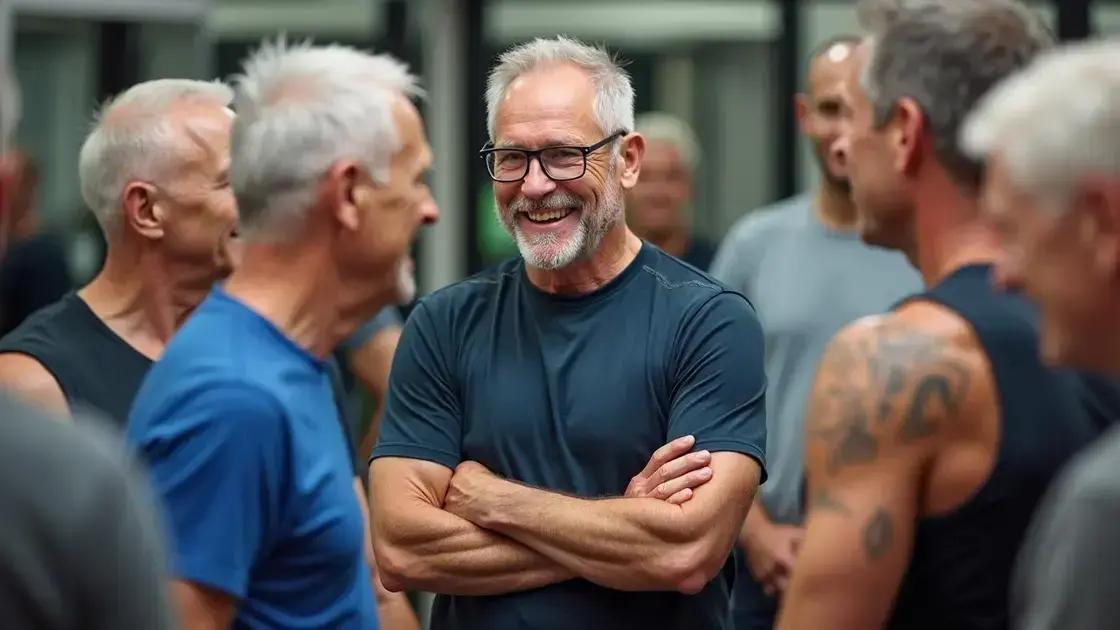
Success stories and testimonials highlight the positive impact of recovery-focused fitness programs for men over 50. Hearing about real experiences can motivate others to start their journey toward better health and wellness.
John’s Journey
At 55, John struggled with weight and low energy. He joined a recovery-focused fitness program that emphasized gradual exercises and recovery techniques. After six months, John lost 20 pounds and reported feeling more energetic than ever. He says, “This program changed my life! I can do things I thought I couldn’t at my age.”
Michael’s Transformation
Michael, a retired teacher aged 62, found it challenging to maintain his strength. He decided to try a program designed for older adults. The focus on recovery and strength training helped him regain muscle and flexibility. “I never thought I could lift weights again, but this program made it possible!” shared Michael.
Bob’s Experience
After facing health issues, Bob, age 59, wanted to improve his fitness safely. He joined a recovery fitness class that encouraged restorative exercises. After participating regularly for a year, Bob managed his chronic pain better and regained confidence. He noted, “I’ve met great friends and feel healthier every day!”
Community Impact
The positive effects of these recovery programs extend to the community. Participants often share their stories with friends and family, encouraging others to join. Many have become advocates for healthy living, promoting fitness as a way to enhance overall well-being.
The testimonials reflect how recovery-focused fitness programs can lead to life-changing results. With personalized attention and support, men over 50 can achieve their fitness goals and improve their quality of life.
Embracing Recovery-Focused Fitness for a Healthier Future
Recovery-focused fitness programs offer men over 50 a unique opportunity to improve their overall health and wellness. By prioritizing recovery, these programs not only enhance physical strength and flexibility but also contribute to better mental well-being and a support system through community interaction.
As highlighted by inspiring success stories, many participants have transformed their lives by adopting these fitness practices. Whether through increased energy, weight loss, or improved social connections, the benefits are profound and far-reaching.
Choosing the right program involves careful consideration of personal goals, capabilities, and preferences. By exploring available options and learning from others’ experiences, men over 50 can embark on a rewarding fitness journey that leads to lasting changes.
Ultimately, embracing recovery-focused fitness is a step toward a healthier, more fulfilling life. Do not hesitate to take this important initiative to enhance your well-being and enjoy all the benefits that come with it.
FAQ – Frequently Asked Questions about Recovery-Focused Fitness Programs for Men Over 50
What are recovery-focused fitness programs?
Recovery-focused fitness programs are designed to promote health and wellness for men over 50 by emphasizing safe and effective exercises that prioritize recovery.
What benefits can I expect from these programs?
Participants often experience improved strength, better flexibility, weight management, lower stress levels, and enhanced mood.
How do I choose the right program for me?
Assess your fitness level, identify your goals, research available programs, attend trial classes, and gather reviews to find the best fit.
Are these programs suitable for someone with health issues?
Yes, many recovery-focused fitness programs can be tailored to accommodate health concerns. Always consult with your physician before starting any fitness program.
Can I participate in these programs if I have never exercised before?
Absolutely! Recovery-focused programs often cater to beginners and provide gradual progressions to build confidence and skill.
What types of exercises are typically included?
These programs may include gentle exercises like stretching, strength training with low resistance, and low-impact aerobic activities.

